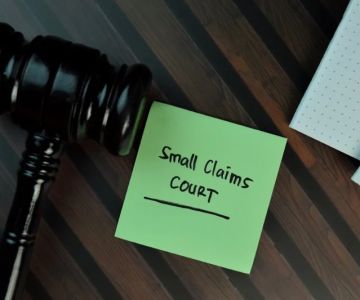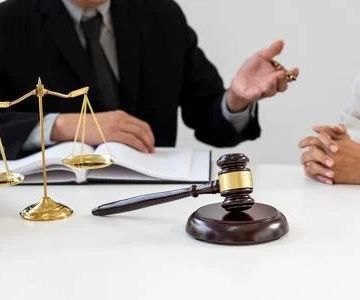
- 1. Understanding the Lease Agreement
- 2. Key Terms to Look for in a Lease Agreement
- 3. Tenant Rights and Responsibilities
- 4. Common Mistakes to Avoid When Signing a Lease
- 5. How to Negotiate Lease Terms
- 6. When to Seek Legal Advice Before Signing
1. Understanding the Lease Agreement
Signing a lease agreement is an essential part of renting a home, apartment, or commercial space. A lease is a legally binding contract between you and your landlord that outlines the terms and conditions of your tenancy. Before signing, it’s important to thoroughly understand the document, as it will define your rights and obligations during your rental period.
The lease agreement will typically specify the length of the rental period, payment terms, and conditions regarding maintenance, utilities, and more. It’s vital to read the entire agreement carefully and ask questions about any unclear terms. Never rush into signing a lease, as it’s a document that will affect you financially and legally for the duration of your tenancy.

Jimmy Vachachira
Mount ProspectCook CountyIllinois
Abraham Sweeney Vachachira, 834 E Rand Rd Ste 3, Mt Prospect, IL 60056, USA
2. Key Terms to Look for in a Lease Agreement
There are several key terms that you should pay close attention to before signing a lease agreement. Understanding these terms can help you avoid misunderstandings and prevent potential conflicts with your landlord. Here are the most important clauses to look out for:
- Lease Duration: The lease will specify the start and end date of your rental agreement. Be sure to note whether it is a fixed-term lease or a month-to-month agreement, as each type offers different levels of flexibility.
- Rent Payment Terms: The lease will clearly outline how much rent is due, when it is due, and how payments should be made. Pay attention to late fees, grace periods, and whether utilities are included in the rent.
- Security Deposit: Understand the amount required for the security deposit, what it covers, and the conditions for its return. Some landlords may charge additional fees for pets or special circumstances.
- Maintenance and Repairs: Clarify who is responsible for maintenance and repairs. Typically, the landlord is responsible for structural repairs, but tenants may need to take care of minor issues like changing light bulbs or unclogging drains.
- Subletting and Guests: Check the clauses about subletting or having overnight guests. Some leases restrict the ability to sublet, while others have specific guidelines about the number of guests allowed at any given time.
By understanding these key terms, you’ll be better prepared to negotiate any aspects of the lease that don’t align with your needs or expectations.

Utah Personal Injury Lawyers
West JordanSalt Lake CountyUtah
8817 S Redwood Rd a3, West Jordan, UT 84088, USA
3. Tenant Rights and Responsibilities
As a tenant, it’s crucial to be aware of your rights and responsibilities outlined in the lease agreement. Here are some basic tenant rights that you should always be aware of:
- Right to a Safe and Habitable Environment: Your landlord is legally required to provide a safe and livable space, which includes addressing any health or safety concerns, such as mold or faulty plumbing.
- Right to Privacy: Your landlord cannot enter your apartment without permission, except in cases of emergency. They must provide adequate notice (usually 24 hours) before entering.
- Right to Fair Treatment: Landlords cannot discriminate against tenants based on race, gender, religion, or other protected characteristics. Make sure you’re treated fairly and equally throughout the rental period.
Additionally, tenants have responsibilities, such as paying rent on time, keeping the property clean, and not causing damage. Understanding both your rights and responsibilities will help maintain a positive rental relationship with your landlord.
4. Common Mistakes to Avoid When Signing a Lease
Before you sign that lease agreement, there are a few common mistakes that you should avoid to ensure that your rental experience goes smoothly:
- Not Reading the Fine Print: One of the biggest mistakes tenants make is failing to read the entire lease agreement. Always review every section of the document to ensure that you understand all terms, even if they seem minor.
- Signing a Lease Without Clarifying Terms: If any part of the lease is unclear, don’t hesitate to ask the landlord for clarification. This could include pet policies, maintenance responsibilities, or rent increases.
- Assuming the Lease is Standard: Every lease is different, and it’s crucial not to assume that a lease agreement is standard or fair. If necessary, seek professional advice to ensure that the terms are reasonable.
By avoiding these mistakes, you can ensure a smooth and hassle-free rental experience. Always take your time, and don’t be afraid to ask questions.
5. How to Negotiate Lease Terms
It’s important to remember that a lease agreement is negotiable in many cases. If certain terms don’t align with your needs, it’s worth discussing them with the landlord before signing. Common lease terms that can often be negotiated include:
- Rent Amount: If you’re moving into a competitive rental market, there may be room to negotiate the rent price, especially if you have a strong rental history.
- Lease Duration: If you need more flexibility, consider negotiating for a shorter lease term or a month-to-month rental agreement.
- Pet Policy: If the lease restricts pets, you may be able to negotiate with the landlord to allow for a pet, possibly with an added pet deposit.
Negotiating these terms can help you secure a lease agreement that better meets your needs and offers more flexibility during your tenancy.
6. When to Seek Legal Advice Before Signing
If you’re unsure about the terms of your lease or feel that something doesn’t seem right, it’s always a good idea to seek legal advice before signing. A lawyer can help you understand your rights, spot any potential issues with the lease, and ensure that you’re not agreeing to terms that may harm you in the future.
Legal advice is especially important in cases where the lease includes unusual terms or if you’re facing a difficult landlord. You can reach out to resources like Barber Law Hub for expert advice and guidance before signing any lease agreements.







 Legg Law Firm, LLC4.0 (24 reviews)
Legg Law Firm, LLC4.0 (24 reviews) The Law Offices of Anna C. Brace4.0 (28 reviews)
The Law Offices of Anna C. Brace4.0 (28 reviews) PGO Law Firm4.0 (72 reviews)
PGO Law Firm4.0 (72 reviews) Levine Haddad & Gregory, LLC3.0 (3 reviews)
Levine Haddad & Gregory, LLC3.0 (3 reviews) Law Office of Klunk and Forzley PC4.0 (152 reviews)
Law Office of Klunk and Forzley PC4.0 (152 reviews) Law Office of Jonathan Panossian, A PC4.0 (5 reviews)
Law Office of Jonathan Panossian, A PC4.0 (5 reviews) How to Avoid Common Legal Mistakes When Buying a Home – Expert Advice
How to Avoid Common Legal Mistakes When Buying a Home – Expert Advice Law Made Simple: Understanding Child Custody Laws in Simple Terms
Law Made Simple: Understanding Child Custody Laws in Simple Terms How to Expunge a Criminal Record – A Complete Guide
How to Expunge a Criminal Record – A Complete Guide How to Choose the Right Lawyer for Your Case – Expert Legal Advice
How to Choose the Right Lawyer for Your Case – Expert Legal Advice Your Rights During a Police Stop – Expert Legal Advice for Citizens
Your Rights During a Police Stop – Expert Legal Advice for Citizens A Step-by-Step Guide to Writing a Will – Expert Legal Advice
A Step-by-Step Guide to Writing a Will – Expert Legal Advice